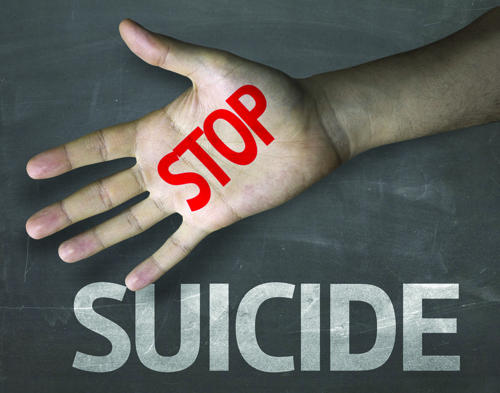Is reducing suicide as easy as passing HB23?

Utah ranks among the highest in the nation in suicide rates. The most common attributor to suicide is depression, and according to a study for “Mental Health America,” Utah ranks as the most depressed state in the nation.
Part of the nation’s “suicide belt,” Utah’s suicide trends among children and teenagers are even more alarmingly high. Children in Utah have considered suicide more than any other state, ranking three times higher than the lowest state (Iowa). Overall, Utah ranks fifth in the number of actual suicide attempts for ages 10-17.
Several anti-suicide programs have been introduced into the public school system as an answer to this silent epidemic. However, a recent political speed bump may prevent these successful programs from continuing. The Family Education Rights and Privacy Act (FERPA) has been recently reinterpreted by the state to indicate that adults working in public education cannot confront a child who exhibits at-risk behavior.
In response, representative Steve Eliason of the 45th district sponsored House Bill 23, labeled “Suicide Prevention Previsions” to make it legal for teachers and counselors approach the state’s youth about depression and suicide.
“We have more deaths in Utah per year from suicide than we do traffic accidents,” says Eliason. The Office of Education worries that asking a potential at-risk student raises privacy concerns, though not a single lawsuit relating to this has been filed.
Such nonprofit prevention programs, including Hope 4 Utah, have seen great success rates in just a short amount of time. From 1999-2005, Provo School District averaged one suicide per year. Since Hope 4 Utah’s inception in 2005, the district hasn’t suffered a single suicide. Until HB 23 passes, however, all these programs are currently on hold.
“We hope that legislatures understand that our goal is to help those kids in crisis,” says Dr. Greg Hundall, Executive Director of Hope 4 Utah. “The only way we can be successful is if we can ask a child if they are struggling.” Hundall worked as an associate superintendent in Provo School District until retiring last year and now devotes his free time to this organization.
The program achieves success through school involvement and student elected “hope squads.” These squads train selected students to watch for warning signs and act as communicators for observed at-risk peers. Currently, the program has been integrated into 50 Utah schools. If HB 23 fails to pass, however, the program will face complications. “It’s a critical piece for us,” says the represenative. “Right now, counselors can’t do anything. Nothing can be implemented.”
Why is depression so prevalent in Utah? Studies at the University of Utah indicate that that state’s high altitude and isolated western mentality play a large role in brain chemistry that can leave Utahns more suspeptible to mood disorders. Altitudes with less oxygen have shown to contribute to major depressive disorder, long associated with suicidal behavior. All states in the suicide belt are western states with mountainous regions or high altitudes. The condition is known as hypobaric hypoxia.
While guns are the most successful weapon with suicide attempts, Hundall insists, “Gun ownership isn’t the problem, it’s the accessibility.” One of the goals of Hope 4 Utah is to ensure that parents keep their guns double-locked.
Contrary to the idea that the strict LDS lifestyle and culture might contribute to stress and suicidal thoughts, research shows that religion is only a positive factor for at-risk behavior, regardless of faith. The highest number of teen suicides in Utah, however, are homosexual.
“We know we can never eliminate suicides, but our goal is to continue to reduce them,” says Hundall. “The kids don’t want to die. They want the pain to stop. And that’s why this is so crucial. You’ll get into more trouble if you don’t ask questions.”
The bill barely passed an interim committee vote before making it to the upcoming legislative session. It will be voted on during the session’s first week. We will keep you posted of its status via our website.





